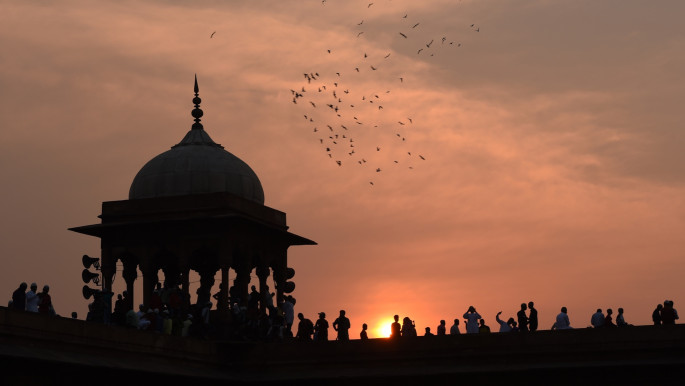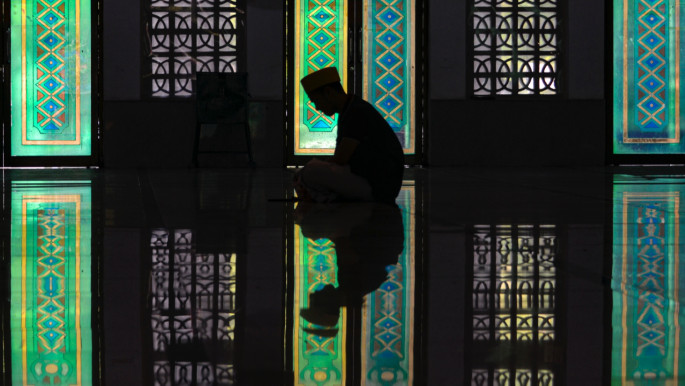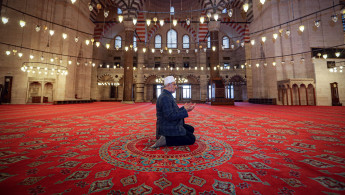Virtual Ramadan: How technology is helping Muslims stay connected under lockdown
At the time, Zoom's IPO prediction was valued at $9 billion. Video calls were already peaking, so it's no surprise that virtual Iftars were being scheduled between families and friends. Instagram Lives and webinars by famous imams and sheikhs were shared, liked and are still being well received.
The initial reaction to a Ramadan in quarantine may have been panic and sadness by the global Muslim community, with a sense of mourning for both our millennium-old traditions and our loved ones. And all of this in addition to trying to navigate what Ramadan could look like without our extended communities during a global pandemic.
With no tangible acts of solidarity such as late-night teas at the mosque after Taraweeh prayers, no taste-testing our grandmother's traditional Iftar dish, and no physical acts of volunteering locally, this hasn't discouraged the ummah from congregating, if anything, we've moved digital.
Ramadan demonstrates that British Muslim communities have shown not only respect to society as a whole by abiding by social distancing regulations, but have revolutionised what acts such as Iftar look like.
 |
From virtual Iftars to live-streamed calls to prayer, technology has helped Muslims stay connected during Ramadan under lockdown |  |
For example, in recent years, the Ramadan Tent Project has held key spaces for Muslims across the UK. The initiative has always acted as a window for different ethnic minority groups to sit together, break their fast and stretch out an olive branch. There's even the possibility of finding your own chosen family, for those who practise Islam alone.
Now due to lockdown, the #MyOpenIftar project has been born. "Each person [you don't have to be Muslim] can sign up to a #MyOpenIftar pack, which provides all the tools needed to host an Iftar experience at home whilst being a part of a virtual community, with our virtual Iftars, hosted every day of Ramadan," says the initiative.
"The virtual Iftars broadcast a live call to prayer, host an array of inspirational guest speakers, and allow households to share their Iftar experiences with one another."
 |
|
| Read more: As British Muslims, let's reconnect with our parents' stories this Ramadan |
Yet for those who are living by themselves, virtual Iftars have become integral in maintaining the Ramadan spirit. For Sadya Darr, a thirty-five-year-old non-profit programme co-ordinator based in London, a virtual Iftar has taught her traditions she'd like to continue in future Ramadans.
"During this Ramadan, I've hosted two virtual one-on-one Iftars. One with my cousin's new wife and the other with my friend who wasn't able to go back to Bosnia for Ramadan," she told The New Arab.
"My cousin's wife was also supposed to be in Pakistan, the country she was raised in, for her Ramadan. Having a quality conversation, without the busyness of Iftar parties, and learning about the environment she's been used to when it comes to Ramadan, has been eye-opening".
Darr notes that because most of her Ramadan was usually taken up by commuting to and from work, being mainly at her desk and frankly being exhausted, (a relatable feeling for all British Muslims who are fasting while working), before this year, Iftar was usually the last thing on her mind.
"I know people around the world are in really difficult circumstances, whether it's in Gaza or Syria, but usually in Ramadan, I'd have thirty minutes to get home and prepare Iftar and honestly, be burned out by the experience. I didn't have time to fully enjoy the 'Ramadan experience'," she said.
"But now, I'm able to replicate an Iftar as close as possible without the small talk. When I did a Zoom call with my friend who was supposed to be in Bosnia, I noticed the similarities in how we do things, regardless of how different our cultures and cuisines may be. She has to have her coffee after her Iftar, just like how I have to have my tea - but I wouldn't have known any of that if we hadn't done a Zoom Iftar".
 |
British Muslim communities have shown not only respect to society as a whole by abiding by social distancing regulations, but have revolutionised what acts such as Iftar look like |  |
Trying to be in sync with another loved one's Ramadan routine, as a way to bond over the period, has also been common for Haya Khalid, a twenty-five-year-old technical consultant based in Liverpool. "My family's based in Saudi Arabia so on the weekdays it's difficult with the time difference to synchronise our iftars, but from cooking together with my mum and having virtual Iftar, has been one of the silver linings," she said.
"When I found out that she was making channa and chole samosa chaat, my immediate reaction was 'Okay, fine, I'll do the same!' I mean, mine was frozen but it was still really cute. One of the things we've also been doing over FaceTime is that I sit and watch Taraweeh namaaz in Mecca with my dad," she added.
 |
|
| Read more: British Muslims go digital for socially-distanced Ramadan |
"We sit together and listen to duas. It's in Arabic so I don't understand every sentence but it's beautiful to hear and if I'm not video calling family, I'm Face-Timing friends and chit chatting with them while they also cook. I'm not fasting this year, so I wait until after Magrib/Iftar time to eat with them too."
Unlike previous Ramadans, this year for many of us has meant we have to consciously maintain our relationships. It's perhaps why through the accessibility of video calls (other than the fact that they are the closest thing to seeing someone in real life) virtual Iftars have been so common.
"For many non-Muslims, Ramadan on the outside looks like it's about food but it's much more than that," says Darr. The experience of a virtual Iftar, even centred in doing something social, is reflective of that.
On one hand, Khalid reminisces about her previous Ramadans. "Ramadan in Saudi Arabia is just another world. It's so lively yet so humbling with everyone there for each other," she said, as well as her memories of spending it with her family in Leeds. Yet like Darr says, having a virtual Iftar, is a tradition she'll continue.
"This Ramadan experience has been really beautiful. I think it's because, during a lockdown, when things aren't so instant, you truly realise Allah's blessings. For example, the fact that I have food and even if I don't feel like eating something, I have another option," she said.
"The fact that I have people to call who just get it. It makes me feel a part of the global Ramadan feeling. All in all, it's a blessing I don't want to lose or forget, when we get out of this, inshallah."
Tahmina Begum is a freelance journalist and editor.
Follow her on Twitter @tahminaxbegum



